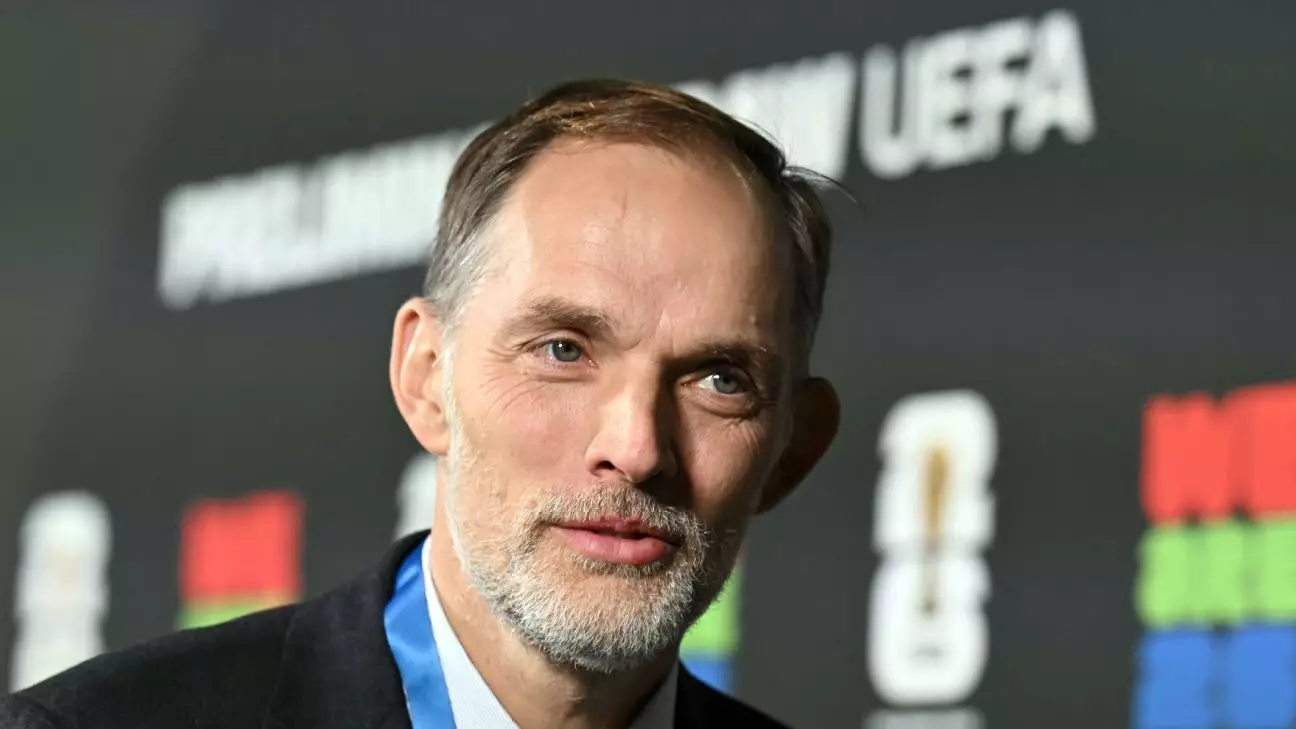The anticipation surrounding the 2026 World Cup is palpable, especially with the recent draw in Zurich that has defined England’s qualifying group. Tasked with competing against Serbia, Albania, Latvia, and Andorra, the English squad faces a mix of familiarity and fresh challenges. Scotland, Wales, and Northern Ireland also await their fates as they zip through the qualification process for the prestigious tournament in the tri-nation hosting of the United States, Canada, and Mexico. It’s a pivotal moment not only for the teams but also for the incoming manager, Thomas Tuchel, who finds himself at the helm of English football in a time of heightened expectations.
Tuchel’s First Impressions
In his inaugural public appearance as England’s manager, Tuchel exuded both respect and caution regarding the teams in his group. He acknowledged the competitive history and technical prowess of Serbia and Albania, emphasizing that these teams can be unpredictable and formidable adversaries. It is essential to recognize that football is not merely a game of skill but also one of strategy and mental fortitude. The emotional energy of the players and their fans can significantly influence on-pitch performances, a factor Tuchel appreciates fully.
Tuchel pointed out the uniqueness of facing Latvia, a team England has never encountered before. This brings both excitement and a layer of uncertainty, as preparation needs to be meticulous. As with any sport, familiarity breeds confidence; thus, the novelty of this matchup adds an intriguing twist to England’s campaign.
While Andorra is labeled as a weaker opponent, the notion of ‘favourites’ can often lead to complacency—a trap that England cannot afford to fall into. The lesson here is simple: all matches must be approached with the same intensity and respect, regardless of the opponent’s stature. The overarching narrative in football today is that gaps between the traditional powerhouses and the so-called minnows are closing. The resilience and tactical awareness displayed by lower-ranked teams have made upsets increasingly common in the sport.
Tuchel’s comments about the need for unwavering focus resonate deeply. For England, this should not only be about qualifying but also about showcasing their talent and strategy on a global stage. The weight of expectations lies heavily on their shoulders; after all, the English side has long carried the dreams and aspirations of a football-loving nation.
Understanding the Structure of the Tournament
The twelve groups established for the UEFA World Cup qualification process comprise a mix of four and five-team entities, where a home-and-away format will test each team’s mettle throughout the seasons. With this, the groups become battlegrounds not just for points but for developing individual player synergies and building a cohesive unit under Tuchel’s management. The added dynamic of the Nations League quarterfinals also introduces an element of unpredictability into the mix; the outcomes of those matches will further shape the qualifying landscape.
Northern Ireland, Scotland, and Wales face their own challenges in their respective groups. The competitive nature of this qualification campaign brings to light the varied footballing cultures within the UK and Ireland. Each team brings its unique strengths and style to the table, offering a diverse landscape that will capture the attention of fans and analysts alike.
As the qualifiers commence, England must prioritize solid teamwork and adaptability. While the presence of exceptionally talented players is vital, Tuchel’s role will be instrumental in pulling together these elements into a formidable squad. The prospect of qualifying is not just a mission; it’s an opportunity for this English team to demonstrate their growth, resilience, and commitment to excellence.
Ultimately, England’s journey through the qualifying rounds will not solely be judged by their ability to secure points. The evolution of the team under Tuchel’s guidance could determine the narrative leading into the 2026 World Cup, setting the stage for a renewed era in English football. As fans eagerly await the unfolding drama, the message is clear: every match, big or small, counts, and it is time for England to embrace this challenge with both humility and ambition.

